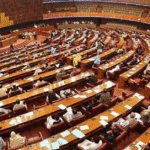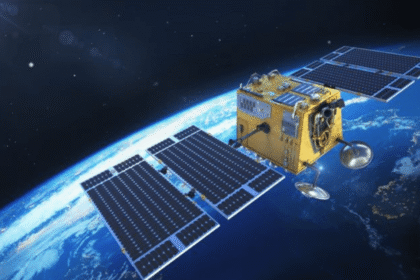In a significant development for Pakistan Tehreek-e-Insaf (PTI) and its supporters, Ali Amin Gandapur has been granted transitory bail ahead of the party’s anticipated protest at D-Chowk in Islamabad. This ruling comes amid heightened political tensions as PTI gears up for a show of strength in response to ongoing challenges faced by the party. The Chief Minister of Khyber Pakhtunkhwa, Mahmood Khan, has reaffirmed the party’s commitment to continue protests until they receive an explicit order from PTI founder Imran Khan, currently facing legal hurdles.
Background on the Political Climate
The political landscape in Pakistan has been increasingly polarized, particularly since Imran Khan was ousted from the prime ministership in April 2022. The subsequent months saw the rise of legal battles against him and several key PTI leaders, including Gandapur, who has been an outspoken supporter of Khan and the party’s agenda.
The legal issues surrounding PTI leaders have further fueled the party’s narrative of victimization by the current government, which they claim is an effort to suppress dissent and stifle opposition. PTI’s protests, including the planned demonstration at D-Chowk, symbolize their resistance against what they perceive as political oppression.
Gandapur’s Legal Troubles
Ali Amin Gandapur, a senior PTI leader and former federal minister, has faced multiple legal challenges in recent months. His transitory bail allows him temporary relief from arrest, enabling him to participate in the protest activities without the immediate threat of legal repercussions.
The circumstances leading to Gandapur’s legal troubles have included allegations of inciting violence and hate speech against government officials. However, his supporters argue that these charges are politically motivated, aimed at diminishing the influence of PTI and its leadership.
The D-Chowk Protest: Objectives and Mobilization
The protest at D-Chowk is not merely a display of defiance; it is strategically significant for PTI as it seeks to galvanize support from its base. The location itself, being a focal point for political gatherings in Islamabad, is symbolic of the party’s historical struggles and achievements.
PTI has been mobilizing its supporters across the country, urging them to converge at D-Chowk for a peaceful protest. The Chief Minister’s announcement signals that this protest is part of a larger strategy to keep the momentum alive in the face of political adversity. The party’s messaging emphasizes unity and resilience, portraying the protest as a necessary response to the injustices faced by its leaders and followers.
Responses from Political Rivals
In response to PTI’s planned protest, the ruling coalition has ramped up its rhetoric, warning against any potential disruption of public order. Government officials have expressed concerns that such protests could lead to unrest, echoing past incidents where protests escalated into violence. The coalition has urged PTI to reconsider its approach, framing the protest as a challenge to national stability.
Political analysts have noted that the government’s apprehension is indicative of the rising popularity of PTI despite ongoing challenges. The PTI’s ability to mobilize large crowds could be seen as a barometer of public sentiment, suggesting that discontent with the current government may be growing.
Public Sentiment and Social Media Dynamics
Social media has played a crucial role in PTI’s mobilization efforts, with the party leveraging platforms to disseminate information about the protest and rally support. Hashtags related to the protest have begun trending, indicating a robust online presence that complements physical mobilization efforts.
Supporters are using social media not only to organize but also to share their narratives and grievances, painting a picture of a party under siege but determined to fight back. This digital engagement reflects broader trends in contemporary political movements, where online activism becomes a powerful tool for engagement and organization.
Potential Impact on Upcoming Elections
The upcoming elections in Pakistan are looming, and PTI’s ability to effectively mobilize its supporters could have significant implications for the political landscape. The D-Chowk protest serves as a critical juncture for the party to demonstrate its grassroots support, which is vital for regaining political capital.
Political commentators suggest that if PTI successfully showcases a large turnout and maintains a peaceful protest, it could reinvigorate its position ahead of the elections. Conversely, if the protest leads to unrest, it could further isolate the party and complicate its electoral prospects.
Law Enforcement Preparedness
As the protest date approaches, law enforcement agencies are preparing for potential challenges. Security measures are being heightened around D-Chowk and throughout Islamabad to prevent any escalation of violence. The authorities have stated that they will allow peaceful demonstrations but will act decisively against any unlawful behavior.
This preparation reflects the government’s intent to manage the situation carefully, aiming to balance the right to protest with the need to maintain public order. The effectiveness of this strategy remains to be seen, especially considering the history of clashes between PTI supporters and law enforcement.
The Role of Imran Khan
At the heart of PTI’s mobilization is the figure of Imran Khan. His leadership continues to resonate deeply with the party base, and his absence from the political scene due to legal challenges has only intensified calls for his return. Khan’s influence remains a pivotal factor in PTI’s strategy, and the party’s actions are often framed within the context of his leadership.
As the founder and face of PTI, Khan’s directives are seen as crucial for the party’s direction. The Chief Minister’s statement regarding waiting for orders from Khan underscores the importance of his leadership in shaping the party’s future course of action.
Community Reactions and Divisions
The planned protest has evoked mixed reactions from the general public and various community leaders. While many PTI supporters are enthusiastic about the demonstration, others express concerns about the potential for unrest and the impact on daily life in the capital.
Community leaders have voiced their opinions, with some advocating for peaceful protest as a fundamental democratic right, while others caution against the disruptions that may arise. This division reflects broader societal tensions regarding political expression and governance in Pakistan.
International Observations
The international community is closely monitoring the situation in Pakistan, especially considering the country’s geopolitical significance. Analysts suggest that how the Pakistani government handles the protest could influence foreign perceptions and relations.
A peaceful demonstration may be viewed positively, showcasing Pakistan’s commitment to democratic principles, while any violent confrontations could lead to international scrutiny and concerns about political stability. The outcome of the D-Chowk protest may resonate beyond Pakistan’s borders, impacting diplomatic relations and international support.
Future Political Landscape
As the D-Chowk protest approaches, the political landscape in Pakistan remains fluid. PTI’s ability to harness public sentiment and translate it into electoral success will be closely watched. The protest serves as a litmus test for both the party and the current government, with potential ramifications for the future of democracy in Pakistan.
The coming weeks will be critical as the parties navigate the complexities of political engagement, public sentiment, and the rule of law. The outcome of this protest could set the tone for the elections and the overall political climate in the country.
#PTI #DChowkProtest #AliAminGandapur #ImranKhan #PakistanPolitics #KhyberPakhtunkhwa #PoliticalProtests #DemocracyInPakistan #PublicSentiment #Elections2024







